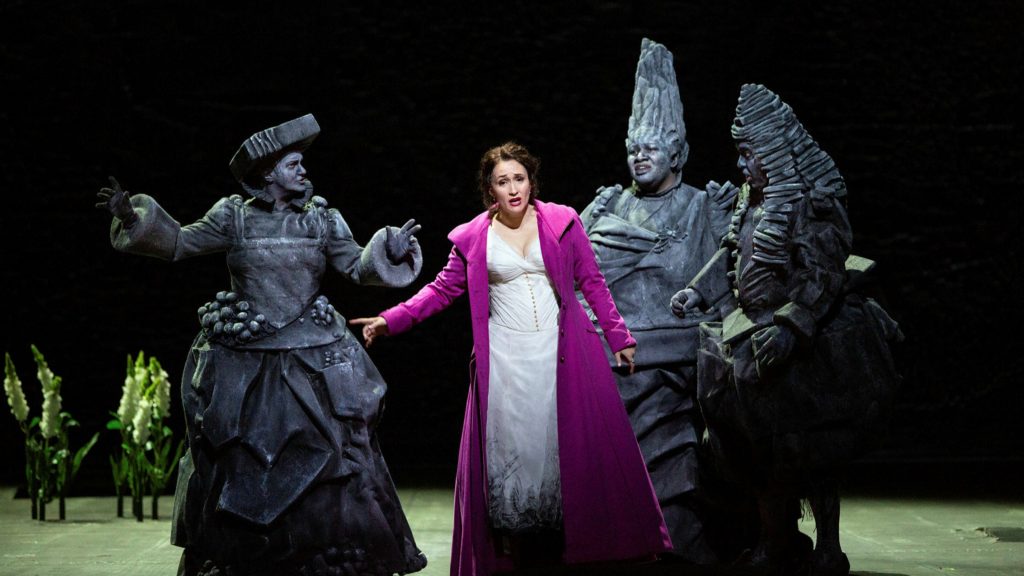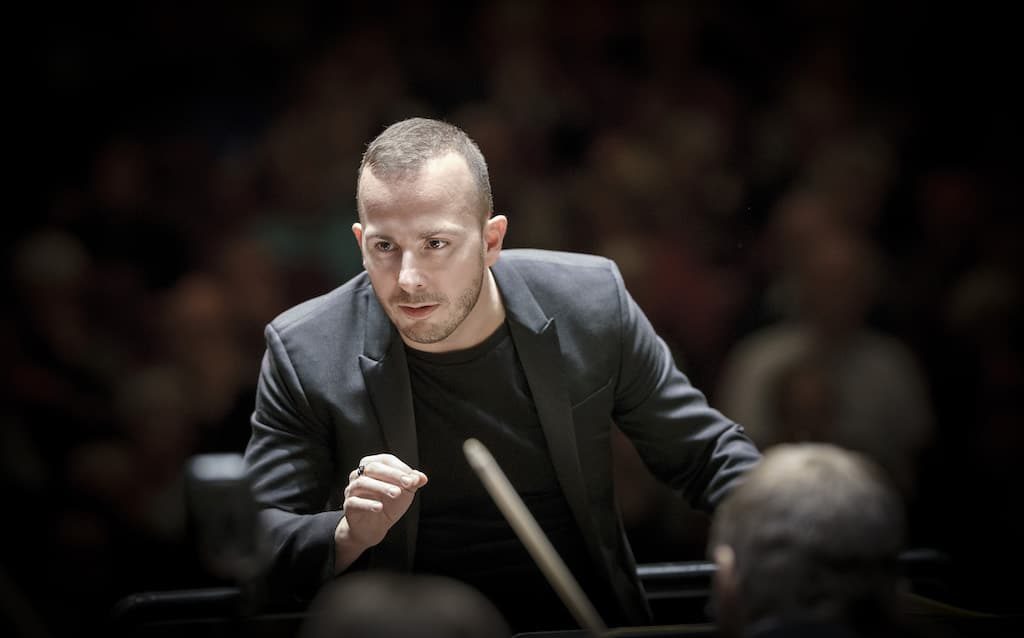VIEWPOINTS – Classical music roundup: Maestro Nézet-Séguin leads the Met and Philly forces in Aucoin’s “Eurydice” and a pair of Beethoven symphonies, respectively
- By drediman
- December 16, 2021
- No Comments
I suspect that no other conductor has been busier nor more engaged in the pulse of New York’s classical music scene than the beloved maestro of the moment, Yannick Nézet-Séguin. For the past few months alone, the dynamic conductor has had to carry a heavy load, debuting two new operas at the Metropolitan Opera (where he is the music director) while also continuing to lead the renowned Philadelphia Orchestra (where he is also the music director). Here are my thoughts on two recent evenings with maestro Nézet-Séguin at the helm.

EURYDICE
The Metropolitan Opera
The Metropolitan Opera has done itself proud by programming two new operas since re-opening its doors – Terence Blanchard’s unqualified hit Fire Shut Up in My Bones in the fall and now Matthew Aucoin’s Eurydice (HIGHLY RECOMMENDED). The Mr. Aucoin’s opera (which concludes performances tonight) is based on Sarah Ruhl’s play, an often whimsical, insightful, and ultimately poignant retelling of the famous “Orpheus and Eurydice” myth, which is notable for being told from Eurydice’s ambivalent perspective (Ms. Ruhl is also responsible for the libretto, which is sung in casual English). Mr. Aucoin is a considerable talent, equally at home writing shimmering, dissonant, as well as lyrical passages of music (as evidenced by his earlier opera Crossing, which I caught at BAM). Indeed, in Eurydice, I was struck not only by the variety but also accessibility (not necessarily a bad thing) of his work, which navigates the not insignificant mood swings of Ms. Ruhl’s narrative with confidence and invention. Interpreting the score for the first time, maestro Nézet-Séguin gave a balanced yet passionate reading. Seemingly inspired by the conductor’s galvanizing performance in the pit, the cast – led by longtime supporting soprano Erin Morley in the title role – responded with equally exciting vocal performances (kudos especially to baritone Joshua Hopkins as Orpheus and the scenery chewing tenor Barry Banks as Hades). Returning to the Met is Chicago-based director Mary Zimmerman (who also originally staged Ms. Ruhl’s play), whose thoughtful, theatrically vibrant production manages to exude playfulness, poetry, and tragedy as needed by the surreal thread spun by Mr. Acoin and Ms. Ruhl.

THE PHILADELPHIA ORCHESTRA
Carnegie Hall
Amidst a busy (and harrowing) start of the season at the Met, Mr. Nézet-Séguin has somehow managed to find the time, drive, and focus to also effectively lead the mighty Philadelphia Orchestra, one of the world’s best regarded orchestras. On its frequent visits to New York, the orchestra performs on the hallowed stage of Carnegie Hall, where it is in the midst of – over the course of a few months – ambitiously performing all nine of Beethoven’s symphonies in commemoration of the 250th anniversary of the game-changing composer’s birth. Of these concerts, I caught, earlier this month, the Philly forces’ renditions of Beethoven’s Second and Third Symphonies (RECOMMENDED). Instead of ripping into these two works as I thought he would, maestro Nézet-Séguin instead chose a more measured and intellectual approach, championing clarity over passion. Although I missed the excitement he typically brings to his concerts, the controlled interpretation makes sense, particularly in the Second, which is conceived in the traditional classical music vein as the works of composers like Haydn. As explained by Mr. Nézet-Séguin during a brief pause, Beethoven in his Third took a huge leap of faith into the unknown by using the framework of the symphony to fundamentally explore the human experience. It’s in this lengthy, monumental work (often referred to as the “Eroica” symphony) – which Nézet-Séguin bled right into from a short but powerful new work by Jessica Hunt (Climb) – that I had hoped the rightly lauded maestro would inject some of his trademark sense of urgency and abandon, as befits a statement on the human condition.

 Copyright © 2025
Copyright © 2025
Leave a Reply